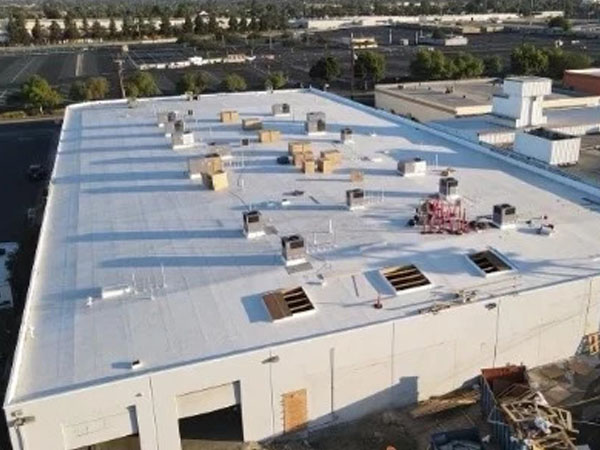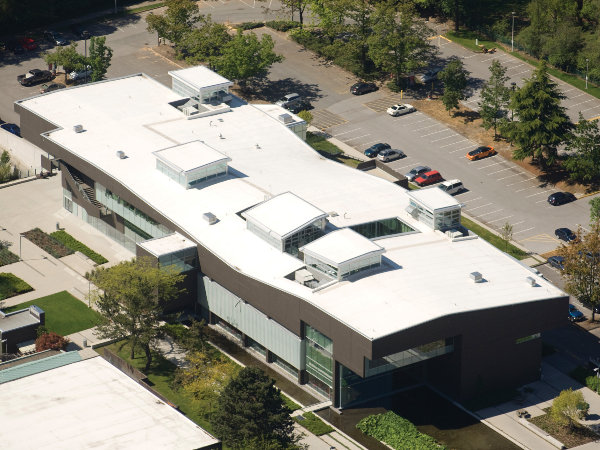Commercial Roofing
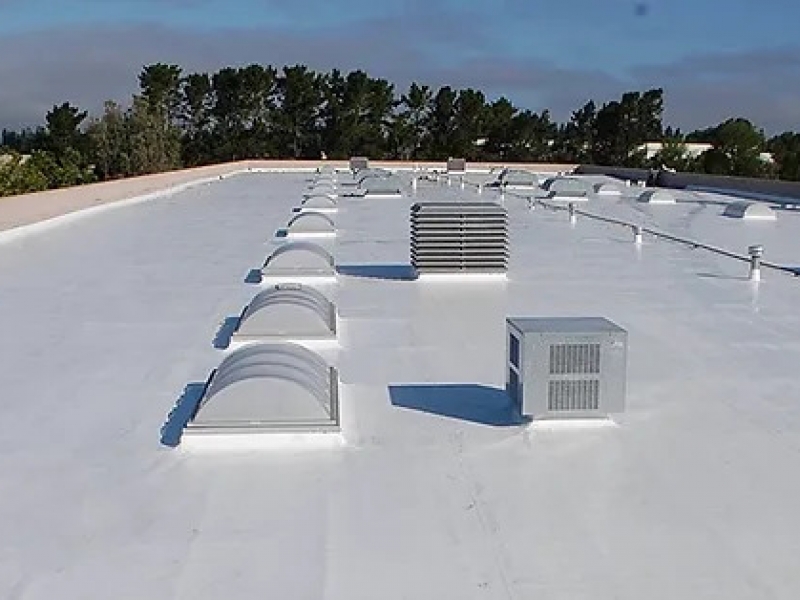
We Are Your Trusted Roofing Company for PVC and TPO Flat Roofs
At A Better Roofing Company, we take pride in delivering top-quality roofing solutions for commercial and industrial properties. We specialize in PVC (polyvinyl chloride) and TPO (thermoplastic polyolefin) roofing systems, ensuring durability, energy efficiency, and long-lasting protection. Choosing between T.P.O. (Thermoplastic Olefin) and P.V.C. (Polyvinyl Chloride) roofs requires careful consideration, and A Better Roofing Company is here to guide you through the decision-making process.
Flat Roof Solutions: TPO and PVC
What is a T.P.O. Roof?
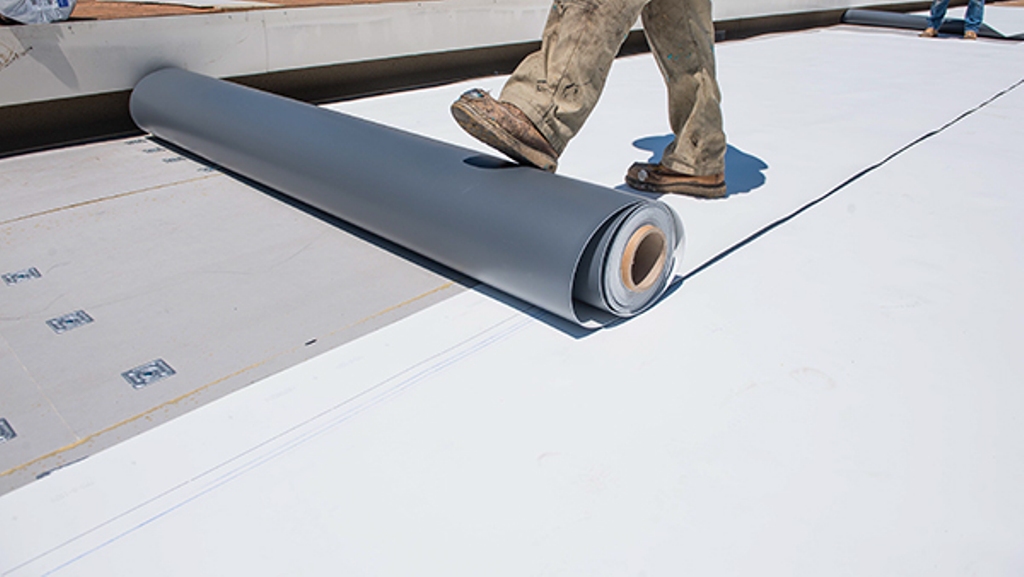
TPO, or thermoplastic polyolefin, is a single-ply membrane made from polypropylene and ethylene-propylene rubber. TPO is known for being heat-reflective, energy-efficient, and one of the cheapest roofing materials available.
What is a P.V.C. Roof?
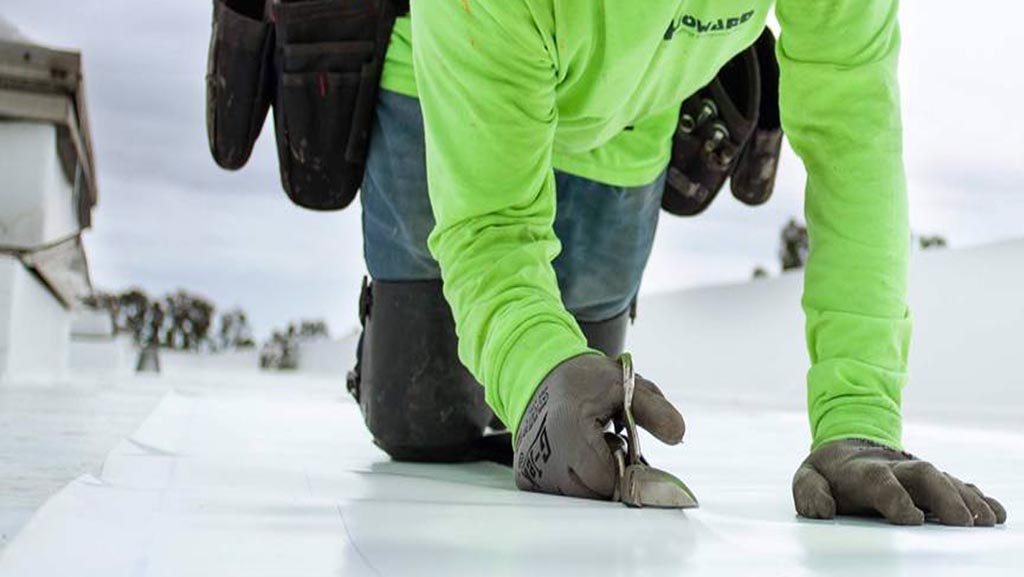
Polyvinyl Chloride (PVC) roofing is made from ethylene and chlorine, combined with plasticizers to improve flexibility and reinforced with polyester or fiberglass.
It is a thermoplastic material that is used for its durability, flexibility, and resistance to weathering, chemicals, and UV radiation. PVC roofing is commonly used for commercial and industrial buildings, but it can also be used for residential roofing.
The Benefits of Flat Roofs
Flat roofs offer a unique design aesthetic and surprising functional benefits for commercial buildings. At A Better Roofing Company, we specialize in installing and maintaining high-quality flat roof systems. Here are some key benefits that flat roofing systems offer:
Cost-Effective
Flat roofs are generally less expensive to install than pitched roofs. They require fewer materials and can be completed faster, which reduces labor costs.
Usable Space
The flat surface provides additional usable space for various purposes, such as housing HVAC units, installing solar panels, or creating a rooftop garden.
Design Flexibility
Flat roofs offer a modern, sleek look and provide a clean canvas for architectural creativity. They are ideal for contemporary building designs and can be customized to suit any aesthetic.
Energy Efficiency
With proper insulation, flat roofs can help reduce heating and cooling costs. They can also support green roofing systems, which provide excellent insulation and help regulate building temperatures.
Durability
Many flat roofing materials are highly durable and resistant to environmental factors. With proper maintenance, a flat roof can last for decades, providing reliable protection against the elements.
Easier Maintenance
Flat roofs are generally easier to access and inspect compared to pitched roofs. This simplifies routine maintenance tasks like cleaning debris and checking for leaks, potentially saving you time and money in the long run.
T.P.O. VS P.V.C.
What You Need to Know About T.P.O. & P.V.C.
When it comes to selecting the right roofing material for your project, understanding the differences between PVC (Polyvinyl Chloride) and TPO (Thermoplastic Polyolefin) is crucial. Both options have their unique advantages, and making an informed decision ensures a successful roofing installation. Let’s explore the key factors to consider:
T.P.O. Roofing: Sustainable Efficiency
T.P.O. roofs are recognized for their sustainability and energy efficiency. Composed of a thermoplastic and ethylene-propylene rubber blend, T.P.O. roofs offer exceptional UV resistance and reflectivity. This promotes a cooler interior, reducing energy consumption and contributing to long-term cost savings. If environmental consciousness and energy efficiency are priorities, T.P.O. roofing may be the ideal choice.
P.V.C. Roofing: Proven Durability
.V.C. roofs are renowned for their durability and resilience. Constructed from high-quality PVC membrane, they exhibit superior resistance to harsh weather conditions, chemicals, and UV rays. The smooth surface of P.V.C. roofs not only enhances aesthetic appeal but also aids in energy efficiency by reducing cooling costs. If you are looking for a roofing solution that marries durability with timeless elegance, P.V.C. roofing could be the perfect fit.
Choosing the Right Roof:
- Consider the building's use: If chemical resistance is crucial, PVC is the better choice.
- Focus on energy efficiency: If lowering cooling costs is a priority, TPO's reflective properties are advantageous.
- Budget: TPO may offer a slight cost advantage upfront.
Comparing T.P.O. & P.V.C. Flat Roofs
We Will Meet All of Your Roofing Needs
We recognize that each project is unique. We consider factors such as your property's specific requirements, budget constraints, and long-term objectives to offer tailored recommendations. With our guidance, you can make an informed decision, ensuring that your chosen roofing solution aligns seamlessly with your preferences and business needs. Trust A Better Roofing Company to provide the expertise you need for a roofing investment that not only meets but exceeds your expectations.

